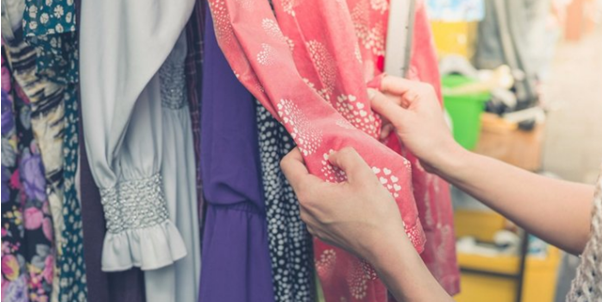It is not easy to break into an industry, but that is particularly true about clothing. While other companies bask under a 50 percent or higher business rate after four years, apparel and retail do not. Indeed, by the end of the fourth year, a full 53 percent of clothing lines will fold out.
One major reason for the higher rate of business failure is competition. New designs are in abundance, and today’s in-demand fashion style will be tomorrow’s forgotten look. Competition, however, is not the only reason brand lines fail. Another significant reason clothing businesses have lowered success rates is the marketing end of the company itself.
The RTR revolution
If New York City is labeled as the ‘fashion capital of America,’ it should certainly be the fashion-start-up capital as well. There are several retail/fashion companies, from Gilt to Bonobos, which have gotten their start in the Empire State. However, Rent the Runway (RTR) distinguishes itself as the ‘Netflix of luxury fashion.’
According to Arun Sundararajan, NYU professor, and researcher, the renowned dress-rental company democratizes luxury, representing a key aspect of the sharing economy. “Sure, they’re doing it for fashion, but they highlight the broader promise of the sharing economy: access without ownership,” he says.
After spending five years in the apparel business, the founders of RTR have finally learned about the success factors in a sharing economy. And the learning process isn’t over yet.
The premise of RTR is revolutionary: to provide people with the chance of renting gowns from high-end brands like Kate Spade, Nicole Miller, and 220 other designer brands at a fraction of the retail price. The enterprise, since its launch in 2009, has grown to more than 4 million members. The inventory is filled with almost 50k dresses, and tons of accessories are shelved in a 40,000 sq. Feet warehouse in New Jersey.
The fashion gurus
No doubt, the fashion industry is one of the most complex, yet most fascinating and forward-minded sectors today. It is always innovating and always changing. We have seen a sudden explosion of fashion start-ups online. While others are globally recognized, some companies cater only to a niche community.
Small-scale fashion companies are changing the way we shop for clothes. There are various fantastic brands in the clothes sphere, hoping to alter the way we consume and market products for the better. Here is a list of the seven brightest marketing experts out there.
- Vinted
Vinted sprouted up back in 2008, established by Justas Janauskas and Milda Mitkute. A brand is a place where female customers can sell, buy and swap used clothing. Vinted is an easy, peer-to-peer marketplace that also doubles up as a social networking site by encouraging consumers to communicate with each other about anything; from the items, they have bought to deals from the website. Initially what was only aimed at Lithuanian girls has now over 7 million active users in eight separate countries, handling over 200 million requests each day.
- Black Milk: fashion plus fandom
The ‘fandom catering’ clothing store achieved its impressive growth by milking fandom for its worth. It did not stop at making pop-culture inspired apparel, but it established serious legitimacy by getting an official license for their geeky wear.
That unique factor set them up to the leading brand for some of the most loyal, enthusiastic and tightest communities out there – Harry Potter.
- Facebook Page as fandom watering hole:
Establishing a community for your consumer base to be a part of strengthens their relationship with your brand. Dedicated ‘sharkies’ can then connect with like-minded fans on the online platforms.
There is also a Black Milk-approved group were young females could buy, swap, and sell their purchases with each other.
- Navabi
Navabi – a sole online merchant – was established in 2007 and since then has carved itself a fashion sphere in the women’s retail market. They manufacture, design and supply plus-size fashion for women. The company was brought to life by Bahman Nedaei and Zahir Dehnadi. According to the experts at Navabi, the market for boutique plus-size fashion wear for women is huge, and it is steadily growing.
The recent reports suggest that Google searches for the term ‘plus size’ have increased by a total of 14 percent since 2014. Back in late 2014, Navabi launched exclusive plus size model Ashley Graham’s lingerie range.
- Showroom
The showroom is a Polish e-commerce brand whose main headquarters are based in Warsaw. Customers have used Showroom to gain the ability to purchase clothing from numerous independent fashion designers who are all based in Eastern and Central Europe. Functioning in a similar way to the popular Asos marketplace and leatherskinshop, brands can easily upload a description and photograph to the website, which consumers can then purchase directly from the designers themselves.
One of the main marketing tools utilized by Showroom was social media – they used Facebook in their favor by letting their followers on the site to ‘like’ and share their favorite garments. This resulted in a doubled website turnover.
- Ministry of Supply
Ministry of Supply set out to raise around thirty grand, and within five days of launching their campaign, they met their goal. In fact, they went on to raise $400k over their target. And after their phenomenal success, the company went out to secure $1.1 million in funding. Kit Hickey, the co-founder, commented on the purpose of ‘crowdfunding’ for the menswear start-up calling it a ‘test to see if people want to buy this product.’
For them, it was amazing to see people emailing messages like ‘I can’t wait to buy these in every color.’ It was also to have these advocates become part of the growth and family by launching the company together.
- Love the Sales
Love the Sales is a uniquely designed website that allows consumers to shop all the sales on the worldwide web. The online retail site integrates thousands of brands, drilling down to the smallest detail of what you want and provides you with the exact results on sale. This aspect allows customers to get the clothing they wish for at a reasonable price. It is a fantastic platform that provides users with a great way to receive amazing value-back when shopping.
- Spring
Another online retailer in the marketing category is Spring; offering detailed photo feed of products that can be purchased with a single swipe. After buyers fill out the relevant shipping and credit card information, they just swipe right, and the product is on its way. Spring also does not hold an inventory, acting as a medium between its 800-plus shoppers and brand partners.
With free shipping, Spring has become a quick, low-risk way for fashionistas to finally buy all the new trends they drool over on Instagram. The brand also integrates with Magento, Shopify and other e-commerce software providers, allowing companies five different ways to plug their inventory into the app.
Last thoughts:
Build a product that you care about so you can put in the effort that differentiates you from the rest. Raul Galera, partner manager at referralcandy talks about his journey while launching a sports marketing company with a friend. They had moderate success, but Galera did not have a strong enough interest in what they were doing.
“Don’t just start a business to start a business – make sure it’s something you love and believe in.”




